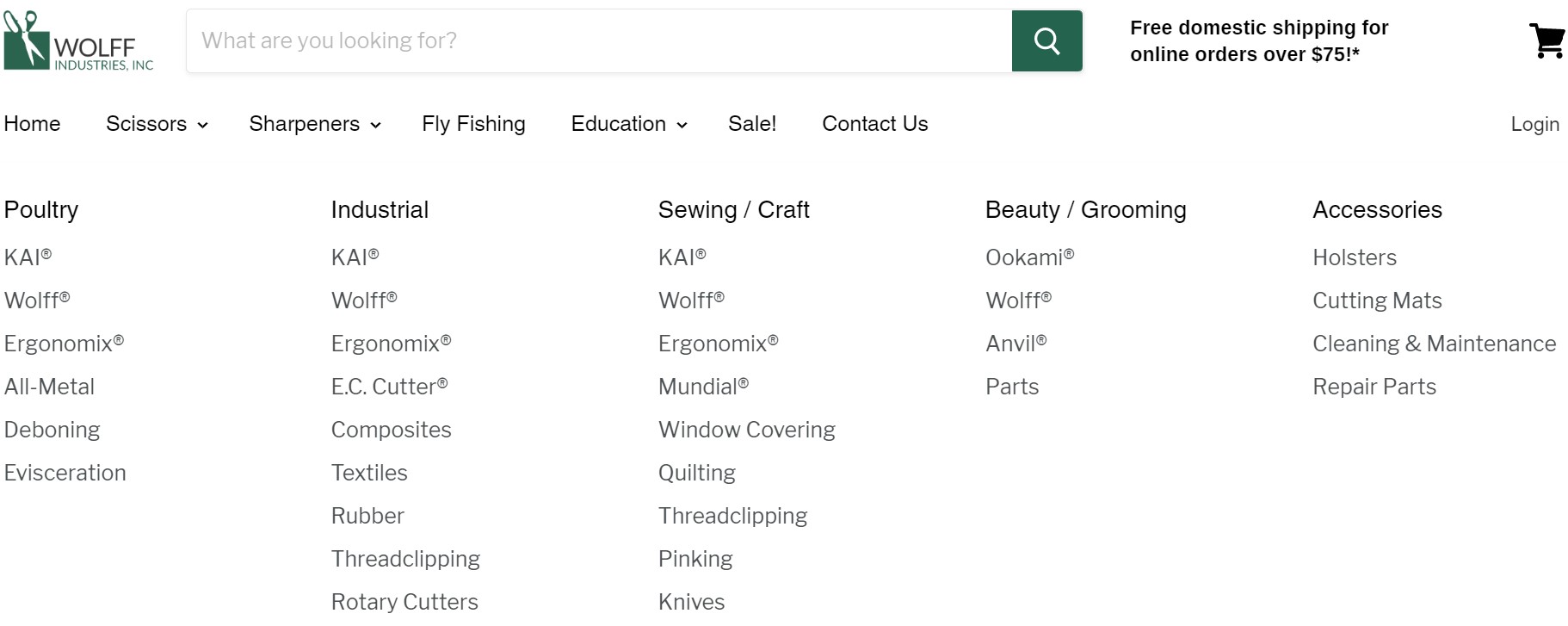Pages on a manufacturer's website that specifically name the industries you serve and how you solve problems for businesses in that industry are valuable content that serve many purposes. Manufacturing marketers can realize several benefits when website content is planned and built out around the types of businesses that use their product or services. The below menu is an example of how one manufacturer structured its industry pages.

Five Reasons Manufacturing Marketers Should Create Industry Pages
- Attract visitors to your website with inbound marketing / content marketing techniques that benefit manufacturing SEO
Content-rich pages about the products you sell and the industries you serve are crawled by search engines like Google and if done correctly, will be found by your target audience. - Educate visitors about the industries in which your products are used
Provide well-organized information that includes products intended for each industry and how you solve its needs. - Showcase your experience in their field
You aren’t hammering a square peg into a round hole; your products are designed to fit specific industry needs and you build a buyer’s confidence when you make it clear that the product fits their situation so they can move forward in a purchase. - Give a clear picture of what you do not do
Showing a clear picture of the industries you serve helps weed out visitors who are not in your market and saves your sales and customer service teams from fielding unnecessary inquiries and diverting focus from buyers. - Expand on complimentary products or services
A complete picture of solutions you provide to an industry can enlighten visitors to things they didn’t know you offer or options that are better than they imagined.
Effects of Industry Pages on Manufacturing Digital Marketing
As a digital marketing agency that specializes in B2B Manufacturers, our clients experience notable success in building out content on their industry pages.
The Google Analytics screenshot of an industrial manufacturing company below illustrates the increase in organic search traffic to the industry-specific landing pages, showing that growth continues over time as the pages gain expertise, authority, and trustworthiness (EAT) with the Google algorithm.
.png?width=2155&name=image%20(1).png)
Plan, Build, and Implement Industry Pages
Develop a content plan for industry pages covering all the industries you sell to and then build a template for the pages and use it to develop copy for all pages. We recommend starting with the most predominant industry you serve (the one currently driving the most revenue). Once that page is built and edited (and re-edited) go back to adjust the template and use it for the remaining industries you serve. The template is just a structure for the information on each page. Each industry should have unique, but similarly formatted content.
Six Things to Include on Industry Pages
- A description of how your products are used in the industry
- General compatibility information (specs for each product should be on the product pages)
- Benefits you provide over competitors
- Frequently asked questions (FAQ)
- How products abide by safety or compliance standards
- Testimonials from clients in that industry
- Links to e-commerce pages to purchase now or a call to action to get more information
For more information about developing and implementing a content marketing plan for manufacturing companies, watch our webinar, Building Your Content Calendar from A to Z.






Agree, disagree, or just have something to add?
Leave a comment below.